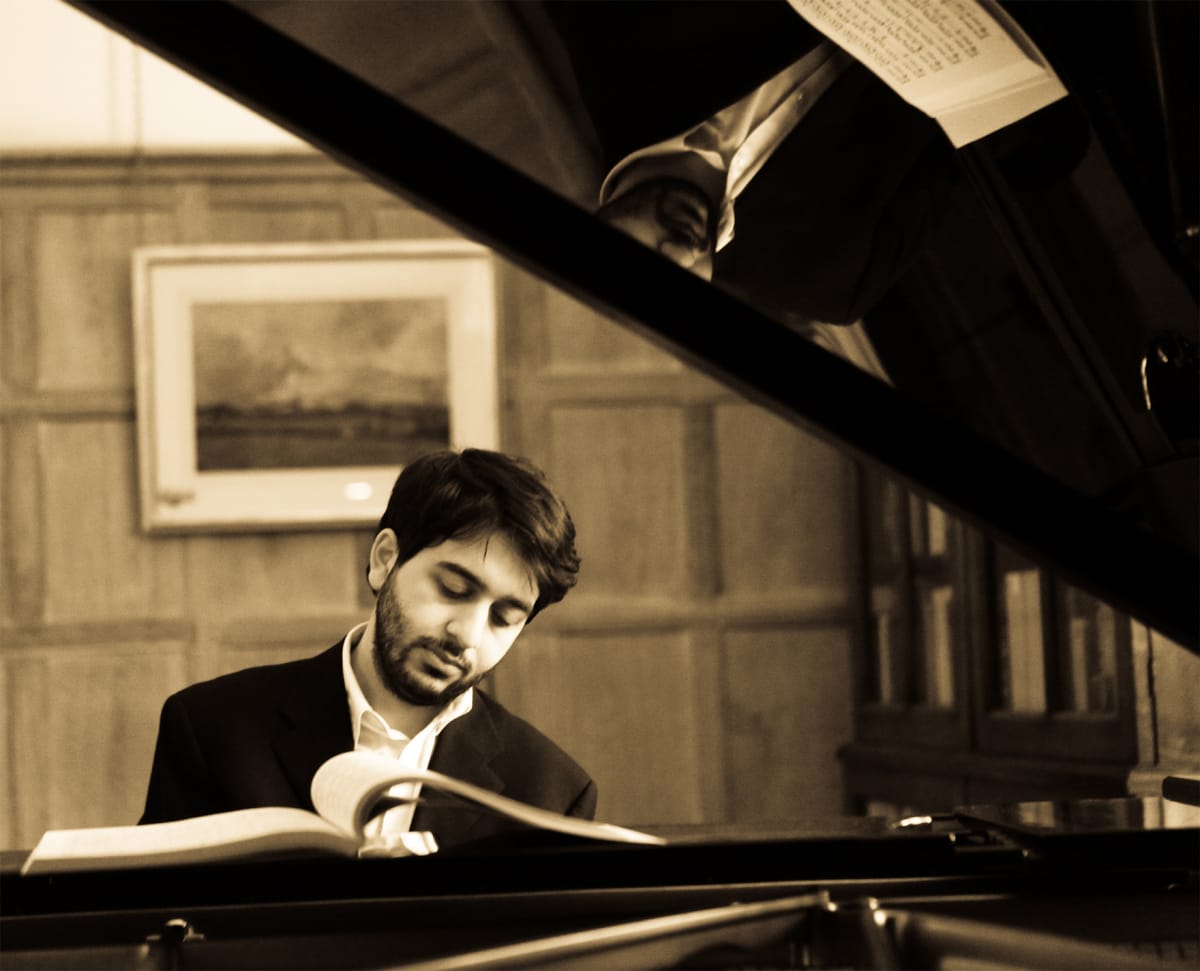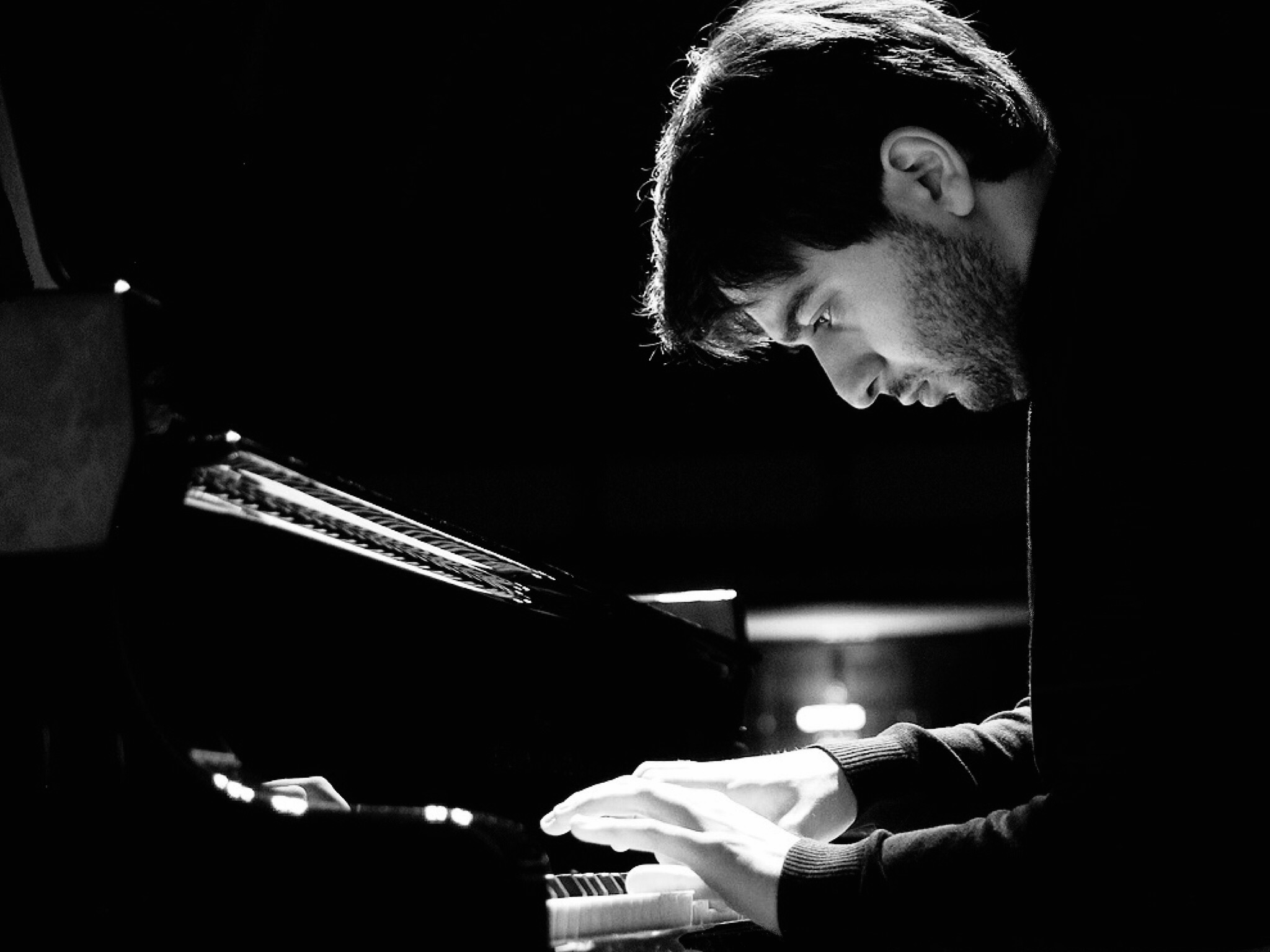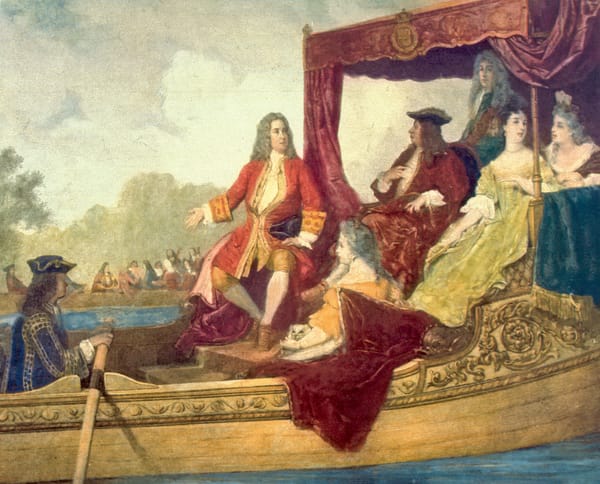An Interview with Luka Okros

Fareed Curmally: What was growing up in Tbilisi like?
Luka Okros: I was born in 1991, a year when the USSR collapsed, followed by economic, social and poverty problems. No jobs, not much opportunity. Many families, including mine, lost a lot of money as a result of huge devaluation. Civil war and internal conflicts during the 1990s made all this even worse. Not much fun!
I remember how cold our music school was, as the heating didn’t work. So we had to wear coats and gloves with holes for fingers to practice the piano.
FC: Was there a lot of music? Were the latest international recordings available and what about the availability of music scores?
LO: Georgia was always a very musical country, where people appreciated and loved music. I’ve heard lots of recordings mostly on cassette tapes. Georgia as a part of the huge empire still had rich access to many classical music scores.
FC: Did you enjoy playing for people in public or did you resent it as an intrusion of your privacy?
LO: I really loved to perform in public. Even when I was 4, before playing the piano I always asked my parents to introduce me to the guests while hiding behind the curtains. It was part of my personality and character to be on the stage.
FC: At what age did you move to Moscow?
LO: I was 13. I didn’t really speak Russian, only some sentences, which I had learned from cartoons. It was a hard time. The decision to move was not very easy. My father had to stay in Georgia to take care of my brothers. So, the only way for our family was to divide.
FC: Can you describe the change in scene?
LO: Moscow was very friendly to us. Many people helped us during our stay there. Even if it was hard financially, I was surrounded by wonderful personalities. They were real intellectuals, kind and generous people. I had and still have amazing friends of different nationalities. I am thankful to my profession that it gives me opportunities to meet a lot of extraordinary and interesting people. And I am lucky to call some of them my friends now.
FC: Did you have family members with you?
LO: My mom.
FC: Were there strict authoritarian and disciplinary measures to make you practice or did you take to it naturally?
LO: Before my teenage years, I was spending most of my time playing the piano. I had a few friends, usually much older than me. Sometimes, I needed strict control, but more than that I needed goals. As soon as I had one – I worked.

FC: Can you describe the impact of moving to London had on your playing career and outlook?
LO: London requires a complete artist. No mercy. No second chance. You should be professional and it’s not only about playing piano. You should be well organized in each question. I like London. It teaches me a lot, changes me for the best. I love the people here. While giving recitals, I travel a lot, adore many places, but I am always happy to return to London, where I feel at home.
FC: How were the two techniques of musical education in London and Moscow different from each other?
LO: The Russian approach is a strong theoretical base and the British approach focuses on the strong practical support, including teaching some management skills. Together, it’s a very strong combination.
FC: Please mention the role of exercises and studies, the metronome and tone production.
LO: I always hated any technical studies, especially scales which were automatic finger’s sprint. I preferred musically hard pieces with deep ideas. While the metronome was my friend in early years and still sometimes I may need to use it!
FC: Who are your favourite composers and why?
LO: Rachmaninov for depth, Chopin for cantabile, Schumann for emotions and thoughts.
FC: What is the role of playing Bach in a pianist’s repertoire and discipline?
LO: It’s a base for teaching your ears to listen to polyphony. Bach is a combination of math and improvisation in one.
FC: Who are the artists you admire most, from previous generations as well as the present?
LO: Rachmaninov. Horowitz. I wish I had an opportunity to listen to their live performances in person. Also, Sokolov and Brendel.
FC: Finally what is your repertoire and which concertos do you play?
LO: I love romantic music. So, my repertoire is Chopin, Schumann, Rachmaninov, Liszt, some Schubert and right now, a lot of Bach for Hong Kong, where I am performing at the Joy of Music Festival.
FC: All the very best Luka for your India debut! I look forward very much to your concert. I am very sure you will love the Mumbai audience. A hearty thank you to Mehroo Jeejeebhoy and the MMMF for presenting this concert and a big toi toi toi to you.
Luka Orkos will perform on Sunday, November 12, 2017 – 7 PM at the Royal Opera House, Mumbai. The programme will include works by Bach, Chopin, Schubert, Rachmaninoff, Prokofiev and Liszt.





